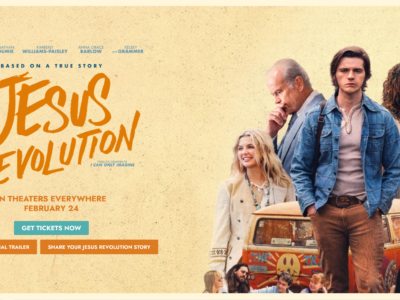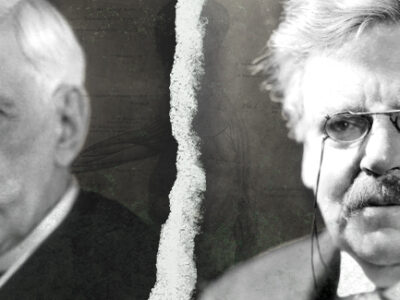he year 2016 may likely be remembered by history as a year full of surprises, divisions, and changes. To help remember the year that was, we at The Center for Vision & Values asked some of our fellows and contributing scholars to reflect upon 2016 and create their own list of the Top Stories of 2016. We invite you to reflect upon some of the most important stories of 2016. We’ll start with some good news. Enjoy!
Top Upbeat News Stories
By Dr. Gary Welton
5.) Champions At Last. The Cleveland Cavaliers bring a basketball championship to town, and the Chicago Cubs celebrate at Wrigley. It was Cleveland’s first sports championship since 1964. The Chicago Cubs won for the first time since 1908.
4.) Historic Lows. Crime rates in America continue at historic lows. Though there are areas of concern, especially with regard to murder rates in Chicago, Baltimore, and Washington, DC, America’s crime rates are down.
3.) Cancer Deaths Fall. Cancer mortality rates are down. There is some cause for concern, as the overall life expectancy in America blipped downward, especially due to heart-related deaths, but cancer deaths fell. There are reasons for hope as we develop and test new treatments for certain forms of cancer.
2.) Poverty Reduction. Global poverty is at its lowest level in history. According to Max Roser of the Institute for New Economic Thinking at Oxford University’s Martin School, capitalism is working across the globe.
1.) Growth. The church continues to grow in Africa and Asia.
Top Stories in Law
By Dr. John Sparks
5.) Justice Scalia’s Death. Supreme Court Justice Antonin Scalia’s death in February qualifies it for the most shocking, unsettling event of the year in legal affairs. Justice Scalia managed to convince an important segment of the judicial community and at times, his own colleagues on the court, that judges ought to “rely upon the wise men who constructed our system, and of the people who approved it, and two centuries of history that have shown it to be sound.” He did not mince words in describing what he thought was judicial arrogation of power. When putting the rhetorical question whether abortion was a liberty right protected by the Constitution, he bluntly replied: “I am sure it is not.” On the same-sex union case, Obergefell, he described the majority as engaged in a “judicial putsch.” Though he bluntly identified the sophistries of his “living constitution” colleagues, his good humor and gregariousness kept them open to his views.
4.) The Garland Nomination Rebuffed. The second most surprising development in the legal arena was related to the death of Justice Scalia. The Republican majority in the Senate under majority leader Mitch McConnell refused to allow the Obama nominee, Judge Merrick Garland, to be considered for the open position on the court. In baseball terminology, he not only did not get to first base, he did not even get into the on-deck circle. Despite a heavy attack by the liberal media, falsely portraying Garland as a moderate, the Senate majority held firm, which surely qualifies as a surprise.
3.) Trump’s Supreme Court Promise. For decades two organizations—the Heritage Foundation and the Federalist Society—have been prominent in cultivating a conservative theory of Constitutional interpretation to counter the liberal legal orthodoxy that dominated legal education. President-elect Trump sought and received their input—a list of federal and state court judges who eschew judicial activism. Judge William Pryor, one of those on the list, was as a law student president and charter member of the Tulane Law School’s Federalist Society and is a good example of a new generation of judges who take the Founders’ Constitution seriously. Trump has pledged to take his nominees solely from this group, a genuine surprise.
2.) Obama’s Immigration Overreach Thwarted. A tie vote (4-4) of the Supreme Court in U.S. v. Texas ended Obama’s attempt to seize power over immigration that is rightfully vested in the Congress of the United States. The decision had the effect of upholding rulings by lower federal courts that has concluded that Obama’s executive immigration orders were unlawful. If the orders had gone into effect, 4.3 million undocumented immigrants would have had a chance to remain in the United States.
1.) Abortion Regulation Takes a Loss. By a 5-3 vote in Whole Woman’s Health v. Hellerstedt, the Supreme Court struck down the Texas legislature’s regulations requiring abortion clinics to meet the same standards as any other Texas ambulatory surgical center and to have their physicians obtain admitting privileges at nearby hospitals. This was a surprise because the regulations were reasonable and aimed at women’s safety. Nevertheless, by this decision, the high court raised doubts about state attempts to regulate abortion.
Top Stories for the Pro-Life Movement
By Dr. Joseph Horton
5.) Promoting Abortion? The 9th Circuit Court of Appeals upheld a California law requiring pro-life pregnancy help centers to provide information about how and where to obtain abortions. This is an insidious attack on free speech as, rather than restricting speech, it compels speech. The state threatens fines for those who dare resist the command to promote abortion.
4.) Censorship. Attacks on pro-life speech are not unique to California, or even the United States. The French it seems should not have to grapple with moral dilemmas involving the unborn. Therefore it is now French law that websites providing information about fetal development and possible emotional risks to women and men involved in abortion must be censored.
3.) Dear Future Mom. The French have been on a banning pro-life speech roll as a French court has banned the video Dear Future Mom because it might cause distress to people who aborted children for the sole reason that the children had Down Syndrome. This subversive video consists of people with Down Syndrome reassuring future parents that kids with Down Syndrome will love their parents and will have lives that are worth living.
2.) Hope to Overturn Roe v. Wade? Ohio governor John Kasich signed a law banning abortions after 20 weeks. This law will surely be challenged and will provide an opportunity for a new Supreme Court to revisit the Roe v. Wade and Doe v. Bolton decisions that together legalized abortion at any time for any reason in the United States. Many pro-life people voted for Donald Trump in hope of a more life friendly court. This law will soon give us an opportunity to learn if that hope will be realized.
1.) Your Backyard. The work done by your local pregnancy help center. There are not many stories in the national media about the work done by pregnancy help centers, like the Alpha-Omega center near Grove City College. But at these centers real victories happen regularly. Men and women are shown the truth about prenatal life and babies are saved. Emotional and tangible assistance are given to help people choose life. Those who have been involved with abortion find forgiveness and healing. So often the pro-life political news is gloomy. Find out what your local pregnancy help center is doing, you will find the good news of lives saved and transformed.
Top Stories in Economics
By Dr. Mark Hendrickson
4.) Huge Win. The potential economic repercussions of Donald Trump’s presidential victory are “YUGE.” It represents a 180-degree turn from a president who held entrepreneurs (“you didn’t build that”) in contempt to a lifelong businessman. Whereas the outgoing president craved ever-more taxes and regulations to hamper business, the incoming president appears committed to slashing those impediments to business and jobs.
3.) Rejecting Bureaucrats. The United Kingdom’s popular vote to withdraw from the European Union. One certainly can’t blame the people of the UK for asserting their liberty and sovereignty by rejecting rule by unaccountable, undemocratic bureaucrats in Brussels (watch “Brexit, the movie” if you need a clear introduction to the ominous governmental structure of the EU). It will be interesting to see how vindictive the Eurocrats on the continent behave toward the UK, and what sorts of convulsions will accompany the slow-motion crack-up of the EU’s Frankenstein currency.
2.) The Socialist. The Bernie Sanders phenomenon. It is absolutely mind-boggling to me that a mere 25 years after the ignominious and spectacular collapse of “the workers’ paradise” in the Soviet Union—and in a year when socialism is reducing the people of Venezuela to misery and desperation—that Senator Sanders, a self-avowed socialist, nearly won the presidential nomination of his party. In fact, it appears possible that Sanders would have won were it not for some behind-the-scenes rigging by Hillary Clinton’s strategically placed allies in the Democratic National Committee. (My colleagues and I at Grove City College will zero in on the rise of socialism in America at our annual conference in April.)
1.) It Keeps Rising. The national debt fast approaching the $20 trillion threshold. This is a big story, but it has been lost in the shuffle of other newsworthy stories. Also, we who warn of the eventual day of reckoning from our government’s pernicious profligacy, have been tuned out like the boy who cried “wolf.” Indeed, the problem with the national debt is that it really doesn’t matter until it does. We don’t know when we will reach that point, but when we do—when national bankruptcy shakes our currency, our economy, and our political system to the core—it will be the biggest story of all.
Be sure to check out Part Two for more of the top stories of 2016.




